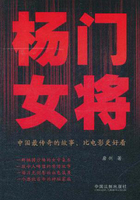Who spouts his message to the wilderness, Lightens his soul and feels one burden less;But to the people preach, and you will find They'll pay you back with thanks ill to your mind.
Goethe.Translated by J.S.B.
Hyde Park is a truly national property, and it is amusing and perhaps edifying to note the various uses to which it is often put.
In the morning it is the rendevous of nurses and children; in the afternoon of a fashionable throng; on Sunday evenings it is the resort of hard-working men and women, who have to content themselves with getting a breath of fresh air once a week.But, above all, the park is the meeting place of the people, the place for mass meetings and monster demonstrations.
On a bright day in June, when the trees were still in their freshest green, the crowd of wealth and fashion had beaten an ignominious retreat before a great political demonstration to be held that afternoon.
Every one knew that the meeting would be a very stormy one, for it related to the most burning question of the day, a question which was hourly growing more and more momentous, and which for the time had divided England into two bitterly opposed factions.
These years which Erica had passed so quietly had been eventful years for the country, years of strife and bloodshed, years of reckless expenditure, years which deluded some and enraged others, provoking most bitter animosity between the opposing parties.The question was not a class question, and a certain number of the working classes and a large number of the London roughs warmly espoused the cause of that party which appealed to their love of power and to a selfish patriotism.The Hyde Park meeting would inevitably be a turbulent one.Those who wished to run no risk remained at home; Rotten Row was deserted; the carriage road almost empty; while from the gateways there poured in a never ending stream of people some serious-looking, some eager and excited, some with a dangerously vindictive look, some merely curious.
Every now and then the more motley and disorderly crowd was reinforced by a club with its brass band and banners, and gradually the mass of human beings grew from hundreds to a thousand, from one thousand to many thousands, until, indeed, it became almost impossible to form any idea of the actual numbers, so enormous was the gathering.
"We shall have a bad time of it today," remarked Raeburn to Brian, as they forced their way on."If I'm not very much mistaken, too, we are vastly outnumbered."He looked round the huge assembly from his vantage ground of six foot four, his cool intrepidity not one whit shaken by the knowledge that, by what he was about to say, he should draw down on his own head all the wrath of the roughest portion of the crowd.
"'Twill be against fearful odds!" said Tom, elbowing vigorously to keep up with his companion.
"We fear nae foe!" said Raeburn, quoting his favorite motto."And, after all, it were no bad end to die protesting against wicked rapacity, needless bloodshed."His eye kindled as he thought of the protest he hoped to make; his heart beat high as he looked round upon the throng so largely composed of those hostile to himself.Was there not a demand for his superabundant energy? A demand for the tremendous powers of endurance, of influence, of devotion which were stored up within him? As an athlete joys in trying a difficult feat, as an artist joys in attempting a lofty subject, so Raeburn in his consciousness of power, in his absolute conviction of truth, joyed in the prospect of a most dangerous conflict.
Brian, watching him presently from a little distance, could not wonder at the immense influence he had gained in the country.The mere physique of the man was wonderfully impressive the strong, rugged Scottish face, the latent power conveyed in his whole bearing.He was no demagogue, he never flattered the people; he preached indeed a somewhat severe creed, but, even in his sternest mood, the hold he got over the people, the power he had of raising the most degraded to a higher level was marvelous.It was not likely, however, that his protest of today would lead to anything but a free fight.If he could make himself effectually heard, he cared very little for what followed.It was necessary that a protest should be made, and he was the right man to make it;therefore come ill or well, he would go through with it, and, if he escaped with his life so much the better!
The meeting began.A moderate speaker was heard without interruption, but the instant Raeburn stood up, a chorus of yells arose.For several minutes he made no attempt to speak; but his dignity seemed to grow in proportion with the indignities offered him.He stood there towering above the crowd like a rock of strength, scanning the thousands of faces with the steady gaze of one who, in thinking of the progress of the race, had lost all consciousness of his own personality.He had come there to protest against injustice, to use his vast strength for others, to spend and be spent for millions, to die if need be! Raeburn was made of the stuff of which martyrs are made; standing there face to face with an angry crowd, which might at any moment break loose and trample him to death or tear him to pieces, his heart was nevertheless all aglow with the righteousness of his cause, with the burning desire to make an availing protest against an evil which was desolating thousands of homes.















